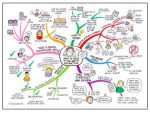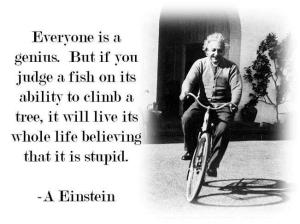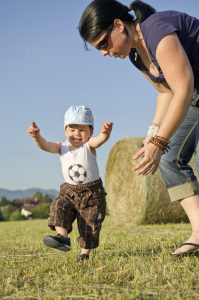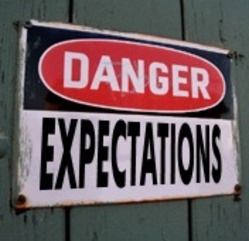Later Stages of Parenting
 The other day, a mother commented, “I have a son in his 40’s. There’s a lot of discussion about the stages of parenting up to college, but you never hear about the stages after. I find that there are a LOT of stages of parenting that come later — and they are important stages, really good stages, for the parent.”
The other day, a mother commented, “I have a son in his 40’s. There’s a lot of discussion about the stages of parenting up to college, but you never hear about the stages after. I find that there are a LOT of stages of parenting that come later — and they are important stages, really good stages, for the parent.”
I love this idea. Watching my parenting slowly shift from full focus on the child (infancy) -> expanding focus to include parental needs/desires (middle school) -> focus on modeling what an adult looks like in the world, and switching from co-creator to guide (high school and beyond) inspires me to wonder: what next? What are those later stages? Have you felt them?
Lately, I have been watching myself as my kids left for college and I continue here on my own. The “Empty Nest Syndrome” is a topic for another blog post (or two or two hundred) and it has been quite an experience. One of the things I think about is how do I want to parent now? When my kids come back for vacation, what’s my role? What do I want my role to be? What kind of relationship do I want to create with my kids? If I don’t call them ‘kids,’ and ‘my young adults’ doesn’t sound right at all, I guess I get to call them by their names. I guess they aren’t ‘my kids’ anymore — they are themselves.
They’re on their phone again! I hate that!!
 I hear this a LOT. I also hear, “they’re always checking their email, and texting – it’s like I’m not even there!” Does this sound familiar to you?
I hear this a LOT. I also hear, “they’re always checking their email, and texting – it’s like I’m not even there!” Does this sound familiar to you?
Well, guess what? These are teens talking about their parents. Kids who want to connect, talk in the car, hang out in silence next to their parents. But parents are checking email, picking up the call mid-sentence with a kid, texting at stoplights. These are kids who will be leaving the house in the next few years, and they are hungering for connection now.
I invite you to step up and talk with intimate others about what boundaries around phones/screens work for you all. This is a perfect opportunity to:
- identify and share your own values and desires around screens/phones
- model what effective parental leadership looks like
- problem solve with kids about solutions – one to try for a week, and then try another, and work with the one that fits best
- have some fun!
THe family can play around with ideas such as:
- texting your ‘texting teen’ when you want to connect and they’re sitting right there: “hey, want to do something fun?!”
- at meals, stack all phones in the middle of the table
- put all electronics to sleep at night at the same time (eek, not my ipad?!?)
- do something so fun together that phones/screens become irrelevant (roller coaster ride?)
- everyone take the day off together, and go on an electricity-free picnic and outing
What works for your family?
HMD
To those who have shown kindness and firmness — placing others’ needs in front of their own — and have followed through, modeling strength and elegance, HAPPY MOTHER’S DAY! Now go put your feet up!
Leo Babauta on resiliency and modeling
 Leo Babauta authors a great blog, Zen Habits. It’s one of the handful of blogs that I subscribe to, and, yes, actually read every entry. His latest post, 9 Essential Skills Kids Should Learn, is worth reading. Letting kids solve challenges on their own, showing resiliency and acceptance in our own lives, being comfortable with an unknown future — good stuff! Check it out!
Leo Babauta authors a great blog, Zen Habits. It’s one of the handful of blogs that I subscribe to, and, yes, actually read every entry. His latest post, 9 Essential Skills Kids Should Learn, is worth reading. Letting kids solve challenges on their own, showing resiliency and acceptance in our own lives, being comfortable with an unknown future — good stuff! Check it out!
Expectations
I thought I had a handle on expectations. I am pretty good at going with the flow and getting behind my kids to let them lead their own way on THEIR path. I even acknowledge that I am kind of tough on myself with the expectations I have for myself. All going normally; I thought I was doing okay.
I was wrong.
The holidays have really thwacked me this year around expectations. I’ve had to really think this through, and for me, it’s not the expectations of having a “perfect” holiday, but something far more insidious.
I have an unyielding expectation that I must create good memories about this holiday. My kids are late teens, and I can feel the change coming. For me, that means that I must store as many good memories away as I can, stockpiling them for the future.
I notice that I am ruthless with myself when there’s a wrinkle, while my heart opens up when there’s a moment of shared laughter. My expectations are sign posts letting me know that I am scared and want to protect, defend, and conserve — so it’s time for me to move toward relaxing more, embracing more, and softening.
Happiest of New Year’s to you!
Be brave enough….
You’ve got to love this from Brave Girls Club. Yes, you can take a stance to believe what you want to – it will get better.
So many people I see are struggling right now.
Yes, you can tell your teen you love them, sing while you drive, smile at others. Their response is irrelevant – it’s more about being how you want to be. You could stop reading right now and tell someone you love that you love them.
Right now, this very minute, can be good.
Einstein’s point of view

Thank you to Chris Pritchard for sharing this from Love-Worldwide’s Facebook page. Research has shown that only 12% of us have the ability to be high academic achievers, and our high school drop out rate is running at around 24%. (Don’t get me started on the state of our current education system..!)
Thank you to Albert Einstein and Steve Jobs for reminding us to see the unique qualities in our kids and to support them in their creativity and strengths. And thank you to all the parents who are stepping up to see and support their kids in being who they are!
I’ve got your back.
 The beginning of a new school year brings up a lot of things: excitement, fear, stress, stress, stress. Look at your kid: see how brave they are being: to go to school, meet new teachers, see old friends, start school work again …. wow.
The beginning of a new school year brings up a lot of things: excitement, fear, stress, stress, stress. Look at your kid: see how brave they are being: to go to school, meet new teachers, see old friends, start school work again …. wow.
What courage – to even walk into campus that first day!
How can I tell my kid that I have his back? That I believe in him/her? I’m steering away from worrying and trying to control and toward thinking about how I can get the message across:
I’m in your corner.
I believe in you.
Wow, you’re really growing up!
I love you.
Any ideas?
Practice
Easy: Text your kid “I love you” every day.
More Challenging: Tell them directly that you believe in them.
Even More Challenging: Ask them how you can support them even more, “If you have any ideas about ways that I can support you, please let me know.”
It’s HARD to stand by and watch
 When kids are young, it’s exciting, thrilling to watch them as they struggle to achieve: remember watching as they tried, again and again, to roll over? I’d watch my son on his blanket, his face red with exertion, as he summoned all his strength to learn how to roll over. I felt totally connected to him as I excitedly cheered him on.
When kids are young, it’s exciting, thrilling to watch them as they struggle to achieve: remember watching as they tried, again and again, to roll over? I’d watch my son on his blanket, his face red with exertion, as he summoned all his strength to learn how to roll over. I felt totally connected to him as I excitedly cheered him on.
Then came walking. As he would stand and wobble at the coffee table, holding onto the edges as he circled it, hand over hand, in some crazed folk dance, I was thrilled, amazed — vibrantly loving parenthood.
So why aren’t I enthused and delighted when my teen struggles with his developmental tasks: coming home late, not telling me where he is, encountering sex, drugs, and rock and roll?
He’s not doing this stuff ‘to’ me — he’s just doing his normal teenager struggles. He’s growing, and struggling — aren’t they the same thing sometimes? Why is this not “cute” anymore – why is this so hard for me to stand by and watch?
Voice: slow
 Slowing down – speaking slowly. Not easy in general, and especially not when I am frustrated, uncomfortable, happy or enthusiastic (Dang – I think that’s about all of the time!).
Slowing down – speaking slowly. Not easy in general, and especially not when I am frustrated, uncomfortable, happy or enthusiastic (Dang – I think that’s about all of the time!).
AND when I can keep my voice s..l..o..w, I LIKE the way I sound. Kids can hear me better, I can hear me better, and I can stop being so reactive and start responding. In class, we ask, “Do you want to be more like Lil’ Kim, or more like Angelina Jolie?” You get the idea – I really like ME when I am slower and more in control.
The speed of my voice with my kids is my temperature gauge: how fast and hot am I running? In class, we use suggestions to get away from the ‘rapid responding mode’ – things like using a shrug (and then another one, if needed), or saying, “hmmm….” or saying, “That’s an interesting idea; I’ll have to think about that.” I like myself a lot more when I speak and respond slowly.
I also think of fights I have had and things I regretted saying — almost all of them were said fast. And I think back to my own teenage days, when I would make my parents mad and there would be yelling: time to tune out.
Practice:
easy: start to notice how quickly or slowly you speak.
more challenging: make a concerted effort to think first and speak more slowly.
even more challenging: Use nonverbals (shrug, hug, smile), and when you do speak to your child, use 7 words or less.



